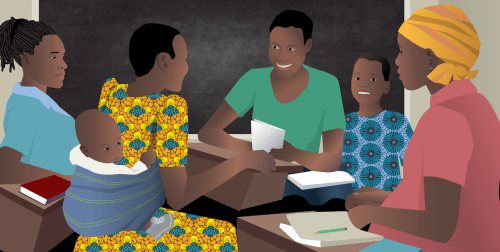Introduction: The Importance of Political Will
The goal of Education For All (EFA), an international commitment launched in 1990 with the aim of providing basic education to every child in the world by 2015, is in jeopardy. Today at least 77 million children do not attend primary school. One reason is a lack of resources: shortages of funding, as well as books, classrooms, and qualified teachers. But there is another reason that may be even more important: the dearth of government commitment to primary education—what, in this context, is often called “political will.” With political will, the other barriers are often surmountable. Without it, even unlimited resources will rarely produce access to quality primary schooling. For example, among the five countries in the world with the most children out-of-school is Saudi Arabia, a country which no one would mistake for poor.
Donors sometimes do try to judge a country’s political will before they offer their aid. In the past donors generally looked to the commitment of individual politicians and policymakers. Then when leaders failed to live up to their promises, the blame fell on their initial will. More recently, some donors, like the World Bank and the U.S.’s Millennium Challenge Corporation, have tried to take account of a government’s past performance and democratic accountability to its people as a guide to whether aid will be well-used.
But most aid for basic education is not directed this way. And even if it was, it probably would not be any more effective. Historically, many of the governments most firmly committed to providing quality, universal basic education were autocratic, not democratic: China, Cuba, Korea, and Taiwan are a few examples. And many governments can seem to switch their commitment in mid-stream; in the 1990s, for example, China became much less committed to basic education while many African countries, like Ghana, became much more committed. With such confusing evidence, how is a donor to know whether a government has enduring political will to provide basic education?
The answer comes from a government’s incentives in providing basic education. There are two groups in a country that may want the government to provide universal, or at least widespread, access to quality basic education. One group is employers; the other is the poor. The key to knowing whether a government will have political will is to know, first, when each of these groups will want the government to invest in primary education, and second, when the government will care what each of these groups wants. If the past is any guide, defining political will this way turns out to be very accurate and not very difficult.


